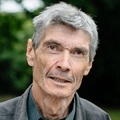How Does Energy Supply Affect Citizen Well-being?
DOI:
https://doi.org/10.21036/LTPUB10675Researcher
Heinz Welsch is an Emeritus Professor of Economics at Oldenburg University. Having completed his Ph.D. at the University of Cologne, he previously held research posts at Cologne and at the University of Bonn. His main research interests include Environmental Economics, Behavioral Economics, and Subjective Well-being. For many years, Welsch chaired the Scientific Advisory Board of the Bremer Energie Institut (BEI) and he sat on the Advisory Board of the Centre for European Economic Research (ZEW).
Original Publication
Electricity Supply Preferences in Europe: Evidence from Subjective Well-being Data
Heinz Welsch,
Philipp Biermann
Published in
Measuring Renewable Energy Externalities: Evidence from Subjective Well-being Data
Charlotte von Möllendorff,
Heinz Welsch
Published in
Citation
Heinz Welsch,
Latest Thinking,
How Does Energy Supply Affect Citizen Well-being?,
https://doi.org/10.21036/LTPUB10675,
Credits:
© Heinz Welsch
and Latest Thinking
This work is licensed under CC-BY 4.0
